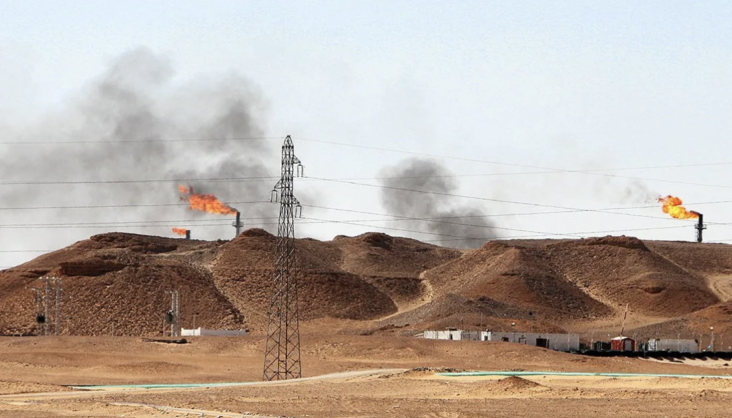[ad_1]
On the sidelines of the signing of a $4bn gas agreement in mid-July, Algeria’s President Abdelmadjid Tebboune reassured “[his] friend” Mario Draghi, now the former president of the Italian Council of Ministers. Algeria, whose natural gas reserves amount to nearly 2,400 billion m3, wants to be “one of Europe’s electricity, solar and conventional energy suppliers”.
The country has changed its ambitions to meet the energy needs of the European Union, which is at odds with Russia, the Old Continent’s historic gas supplier. But, above all, to surf on the volatility of hydrocarbon prices and give a new lease of life to the Algerian economy, which is ultra-dependent on its oil and gas industry.
Power 3
In a press release issued on 25 July, the Sonatrach group announced that it had made two gas discoveries, “by its own effort”, and a third, of oil, in collaboration with its Italian partner Eni.
The article continues below

Free download
Get your free PDF: Top 200 banks 2019
The race to transform
Complete the form and download, for free, the highlights from The Africa Report’s Exclusive Ranking of Africa’s top 200 banks from last year. Get your free PDF by completing the following form
In the Illizi basin, located in the south-eastern part of the country, drilling the “In Ekker Sud West-1” exploration well revealed a global flow rate estimated at 513,000 m3/day of gas and 45 m3/day of condensate during the first tests. Regarding the delineation well “Tamzaia-3”, in the Bechar basin, located at the north-western edge of the Sahara, the Algerian major explains – without giving any figures – that it has obtained “an interesting gas production”.
Committed to increasing hydrocarbon production, Sonatrach and Eni have begun drilling the “RODW-1” well, the third in the exploration campaign launched in the Berkine basin’s northern region. As a result, the two partners have identified 1,300 barrels of oil and 51,000 m3 of associated gas per day. Its production, like that of the “In Ekker Sud West-1” well, will be brought on stream shortly via a “fast-track” development, adds the Algerian public group.
Italian connection
Recently, Algiers announced that it had increased the volume of its gas deliveries to Rome through Transmed, the gas pipeline linking Algeria to Italy, via Tunisia. Since the beginning of the year, 13.9 billion cubic metres of gas have been delivered to the Italian capital, an increase of 113% compared to 2021.
With the renegotiation of supply contracts and the exploration of new markets, the Algerian authorities are counting on a considerable increase in exports to meet the ever-increasing global demand. “The volume of liquefied gas exports could reach 22 million m3 during the current financial year,” said Algeria’s Energy Minister Mohamed Arkab in early July.
[ad_2]
Source link
